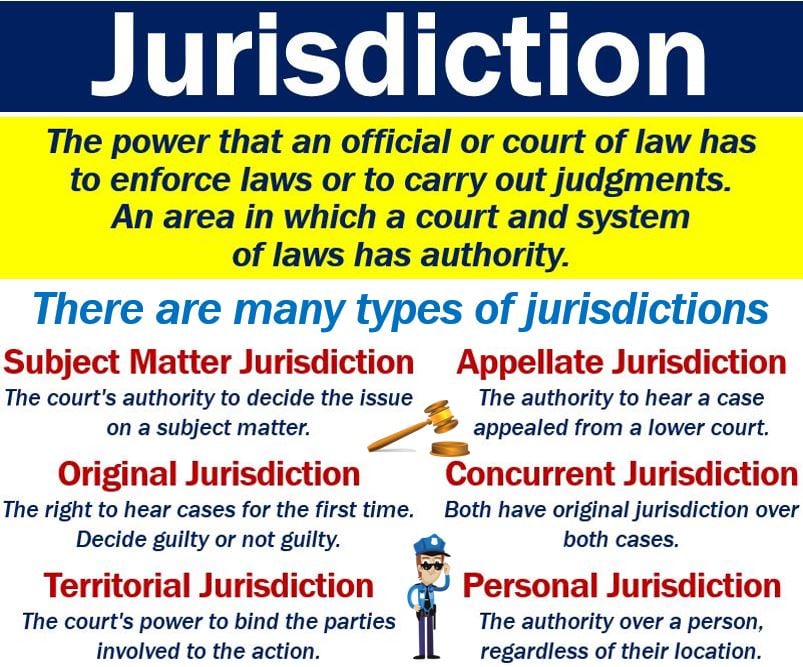Jurisdiction is the power that an official or court of law has to enforce laws or carry out legal judgments. It is the right or power of a police force or legal agency to exercise its authority over a territory or subject matter. It also refers to the power that agency might have to exercise its authority over a person.
We use the term to describe the region in which a system of laws or a particular court has authority.
When a court has jurisdiction over a person, it means that it has the authority to try that person as a defendant. In this context, the word has the same meaning as ‘power.’
We also use the term for regulatory bodies. Lay people use it to talk about a body’s authority over a specific country or territory.
For example, cryptocurrency experts say that as more jurisdictions regulate digital currencies, their legal status will become clearer.

Jurisdiction – etymology
Etymology is the study of where words come from, i.e., their origins. It also looks at how the meanings and structures of words have evolved. An etymology specialist is an etymologist.
The term ‘jurisdiction’ first appeared in the English language in Britain in the early fourteenth century as Jurediction or Jurisdiccioun. At the time, it also meant ‘administration of justice.’
The term came from the Old French ‘Juridicion.’ The Old French term came directly from the Latin word ‘Iurisdictionem,’ which meant ‘jurisdiction, administration of justice.’
In the early fifteenth century, the term also acquired the meaning ‘judicial authority, right of making and enforcing laws.’
Geographical area and granted authority
According to Cornell Law School, the best way to understand the term’s meaning is to compare it to ‘power.’ Any court has the power to try defendants and make judgments only to the extent the Constitution grants it.
In fact, asking whether a particular court has the power to determine jurisdictional questions is, in itself, a jurisdictional question. We refer to such legal questions as ‘jurisdiction to determine jurisdiction.’
We use the term colloquially when talking about a court’s authority or power over a geographical area.
For example, if somebody says “The court has jurisdiction over all of New York,” what do they mean? They mean the court can make judgments and sentence defendants across the whole state of New York.
The legal term, however, only applies to the granted authority rather than the geographical area.
Video – What is jurisdiction?
In this video by The Sterling Firm, a lawyer talks about the meaning of jurisdiction. He starts off by telling us that it means to have the power.
